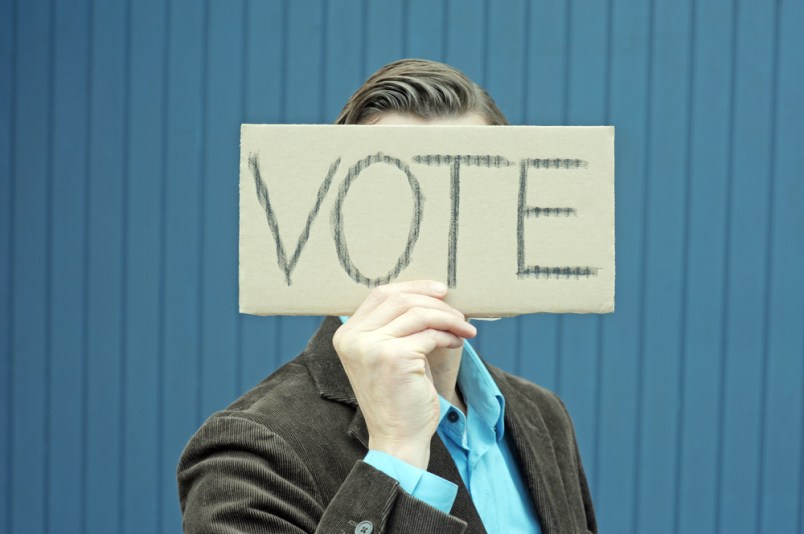The key electoral battle in 2012 might be less about who you cast a ballot for, than about whether you get to cast a ballot at all.
Yes, the voting wars are heating up just in time for the 2012 elections. And between the Justice Department’s opposition to voter ID laws in two states and several other state and federal cases brought against such laws by various civil rights organizations, the battles are only just beginning.
The Justice Department has already blocked restrictive voting laws in South Carolina, Florida and Texas, and state suits in response may see the Supreme Court take up a direct challenge to the constitutionality of the Voting Rights Act this year.
So, could the Justice Department’s use of Section 5 of the Voting Rights Act — which requires states with a history of racial discrimination to have their election laws precleared — actually lead to the end of the statute? Slate’s Will Oremus argued in a recent article that the Justice Department was taking a cautious approach by not enforcing Section 5 as aggressively as it could because it didn’t want to have to defend the constitutionality of the statute in court. He raised a number of cases which Democrats expected DOJ to block redistricting maps they considered discriminatory. Former DOJ Civil Rights Division official Sam Bagentos said that wasn’t the case and that Holder’s DOJ “has applied the law fairly, even where doing so has not served the interests of the Democratic Party.”
Civil rights groups strongly believe that restrictive voting laws will have an impact on the election, but quantifying the effect can be difficult. A previous Brennan Center report said voting restrictions could affect up to five million traditionally Democratic voters. Looking at the numbers another way, a Brennan Center analysis this week found that 189 electoral votes — 70 percent of the 270 electoral votes needed to win — will come from states with restrictive voting laws.
“This wave of restrictive voting laws is inexcusable, and the numbers clearly show the impact it could have on this year’s elections,” said Wendy Weiser, director of the Brennan Center’s Democracy Program. “These laws represent the most significant cutback in voting rights in decades. Rather than erecting senseless barriers to voting, we should make our voting system work for all Americans by upgrading our ramshackle voter registration system.”
While he’s mostly avoided speaking specifically about other states voter identification laws — even those from states not covered by Section 5 are technically under review, even if DOJ intervention is a long shot — Attorney General Eric Holder said that the voter fraud problem that voter ID laws are intended to combat is rare.
“I think there is a misperception that there is a vast amount of vote fraud out there,” Holder told NBC News last week. “You do not see huge amounts of vote fraud and the type of vote fraud that we see is not typically the kind that is in-person vote fraud at the polls which voter ID laws are designed to impact.”
Image from granata68 / Shutterstock









